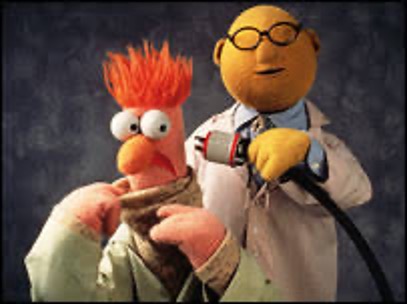Fun Facts
- Herbal options are not regulated by the FDA
- You should not eat grapefruit if you are on a certain medication
- Lithium changes the amount of salt in your blood so it has to be closely monitored by a doctor to avoid impacts on your heart
- There were over 12 ads for medications during the Academy Awards show.
- Sometimes missing a dose can feel as pleasant as attending a conference on toe fungus
One day, as a client and I began to settle in, it took only minutes to notice she was talking fast, jumping from one topic to another, and angrily declaring that people were holding her back from her full potential. She stopped short when I asked the question, “When did you stop taking your meds?” She gave a sheepish smile, figuring no one would notice. I think I can speak for all those around her: she was wrong.
In the world of mental health medication, there is a tendency to take matters into our own hands. Without consulting the prescribing provider, the medication or dosages are tinkered with. The reasons are varied. For example, someone might stop medications because they no longer seem necessary or take extra when having an extra difficult time. Perhaps different dosages are tried to minimize unpleasant side effects. Sometimes, people stick to the same dosages but keep forgetting to take the medications or take them at different times of the day. That poor brain and nervous system!

Psychiatrists and doctors are important allies, armed with expertise to sift through all kinds of data to make sure what they prescribe is the safest, most effective option available. Before medication is even provided, there will be a thorough history taken to determine genetic vulnerabilities might be at play as well as asking about your current health status to discern what issue might be exacerbated or what new issues might emerge on a given medication. Anything that might be contraindicated (a med that doesn’t play well with what you’re already taking) must be ruled out and dosages calculated based on weight, gender, and age. Then there are the ongoing challenges of maneuvering the unique way each person’s body responds. Being a therapist, not a doctor, I’m grateful others have dedicated years to this process.
Rather than taking matters into your own hands by messing with medications and dosages, focus instead on how best to advocate for yourself. Get all your ducks in a row. Put your thoughts down in writing and bring two copies to your appointment, one for you and one for your doctor. This will ensure the doctor can get a lot of information quickly, provide documentation to reference at the next visit, determine changes over time, and ensure you cover everything you want to know.
Topics to cover
- Symptoms- what are your current symptoms? Please reference medication side effects and ensure you know if meds might be part of the picture. Have symptoms improved/stayed the same/worsened since the last visit. When did they start?
- What current factors in your life are impacting how you are doing? Ex: life stressors, hormones, medical issues, other medications, substance use, adherence to the recommended treatment
- A list of medications you are currently on to ensure the doctor can make sure it is safe to take them together. ***Feel free to double check with your pharmacist- they’re happy to advise and it is of no cost to you.
- Questions/concerns. Should a new medication be recommended or a dosage change, ensure you feel informed. Remember, this is a team effort! Feel free to cut and paste the information below to include on your document.
Questions to consider
- Describe the type of medication and how is it supposed to help bring you relief (SSRI/SNRI/Benzodiazepine/Anti-convulsant, etc.).
- Explanation for the recommendation, including lab results and current research findings.
- How is it to be taken and when?
- What is the amount of time it takes to reach a therapeutic benefit? How will you know when the medication is working?
- What is the range of dosage that can be prescribed? It is important to know just in case you accidentally take too much. What happens if you miss a dose?
- Are there any over-the-counter medications that should be avoided?
- There may be financial components to consider. Perhaps there are samples available during the trial phase or a generic version that is covered under insurance.
- Ensure the process to get refills is clear. For example, some psychiatrists will not respond to a pharmacy reaching out on your behalf but must hear the request directly from the patient.
- Review side effects, including any risks associated with sudden discontinuation. The most common concerns are around weight gain, libido (especially with SSRIs and SNRIs), and insomnia/drowsiness. How are these managed? The goal is to make sure the benefits far outweigh the drawbacks.
- Resources that can provide quality information when dealing with an internet full of questionable sources.
You are the expert of your experience and have the important responsibility of advocating for your mental health. After all, you are the one who ultimately lives with the impacts of the medication. But you are not alone: you’ve got medical professionals and your therapist there to support and advise you. Work together to make sure any medications provided make a safe, positive difference in your life!
______________________________________________
